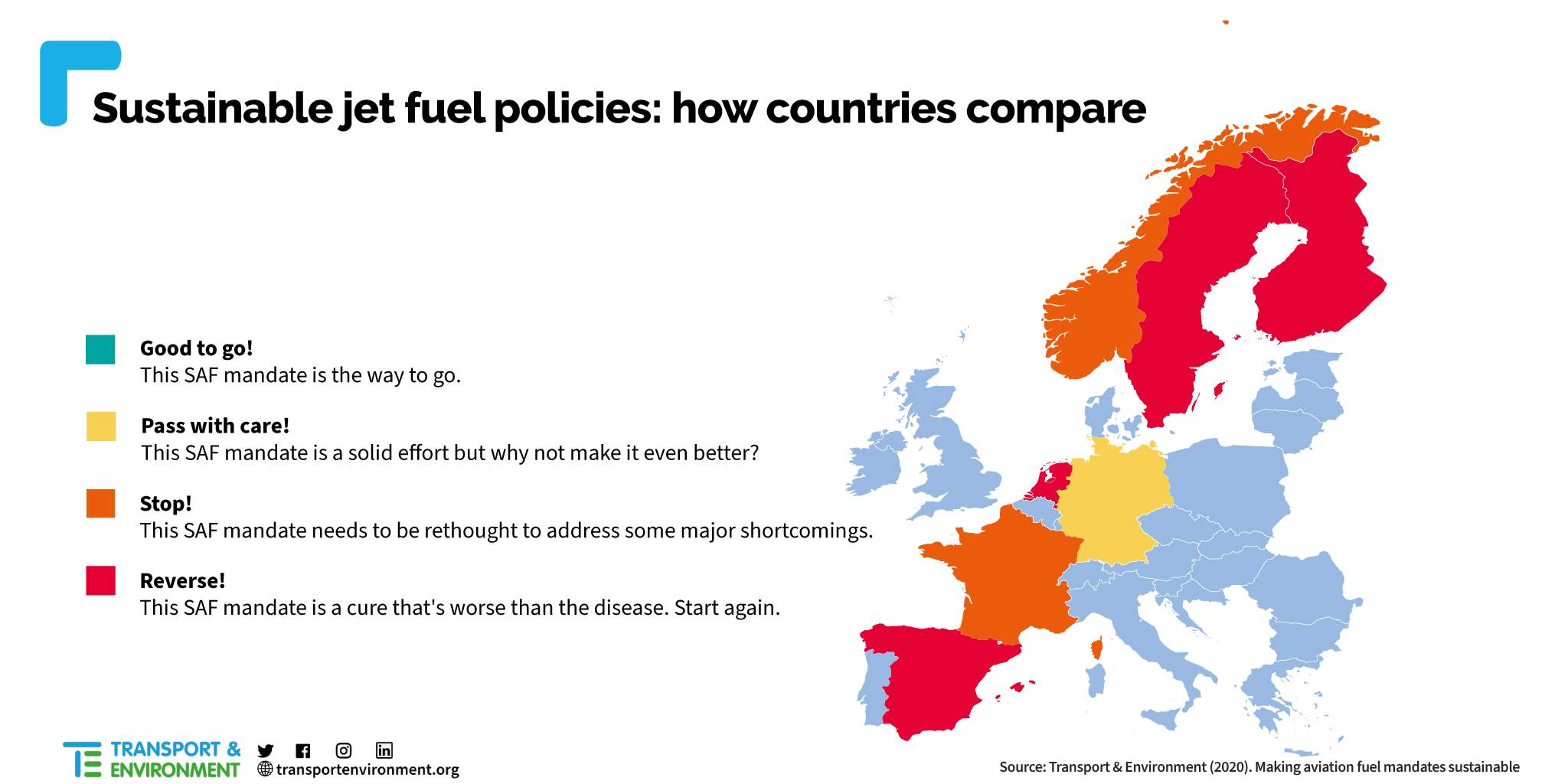
Interested in this kind of news?
Receive them directly in your inbox. Delivered once a week.
Aviation has long suffered from voluntary initiatives and non-binding targets which fail to deliver emissions reductions. Several member states and the EU have proposed to address this by mandating the use of sustainable SAFs. Yet, as a recent T&E study shows, overambitious targets could end up doing more harm to the environment.
Andrew Murphy, aviation director at T&E, said: “Mandating the use of sustainable advanced fuels in the sector is the right way to get these fuels off the ground. However, experience to date shows that SAF mandates, when applied incorrectly, can have disastrous consequences. There remains a worrying focus on crop-based biofuels and many unreasonably high targets run the risk of dragging in unsustainable feedstocks.”
The report finds that Spain, Sweden and Finland risk repeating the biofuels fiasco with plans to promote crop-based fuels while others, such as the Netherlands, are guilty of setting unrealistically high targets that could result in unsustainable biofuels being used. France and Norway do not promote crop-based biofuels, but their high targets for advanced biofuels could lead to increased demand for feedstocks that can only be sourced sustainably in very limited amounts, such as used cooking oil.
T&E notes that Germany is the only country currently on the right path by planning to explicitly exclude crop-based fuels. In not setting a target for advanced biofuels, it limits the risk of turning to unsustainable sources. It is focusing instead on developing e-kerosene for aviation, though the sustainability requirements remain unclear. T&E said Germany should commit to using e-kerosene produced with 100% renewable electricity, and to only take carbon directly from the air – not from waste CO2 which would extend reliance on polluting industry.
For its part, the European Commission announced plans to propose an EU-wide sustainable jet fuel mandate, known as ReFuelEU, in March this year. It should take stock of historical errors. T&E argues that e-kerosene should be at the centre of the Commission’s forthcoming sustainable aviation fuels mandate but should exclude all crop-based biofuels. A realistic target should be set, and one which is based on the carbon intensity of fuels, not simply an energy-based target.
Investment needs to be directed towards fuels which can reduce aviation’s climate impact. The type of alternative jet fuel chosen will decide whether history repeats itself.


